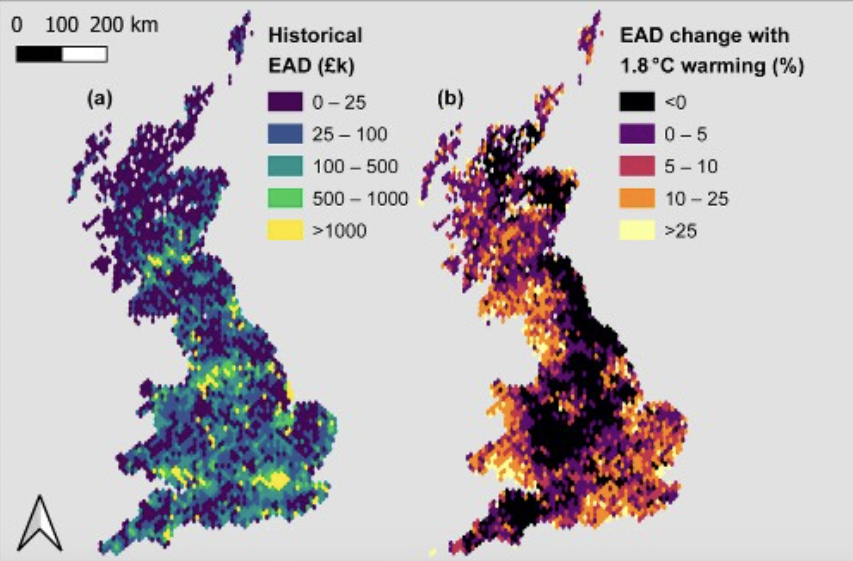New flood map shows areas of the UK most at risk from flood damage
A pioneering ‘flood map’ produced by the University of Bristol has exposed areas in the UK that are most at-risk from rising water levels resulting from a failure to fulfil net zero pledges.
The study, published yesterday, is the first ever to assess flood hazards using the most recent Met Office climate projections. Highly populated cities such as London, Cardiff, Glasgow, Edinburgh, and Manchester could face disaster-scale flooding on a regular basis if countries do not honour promises made at COP26.

Led by Paul Bates, Professor of Hydrology at the University of Bristol and Chairman of Fathom, the research outlines the North West, South East England, Central Scotland and South Wales as being at risk. Flood damage in these areas could increase by 25% over the next century.
Against this backdrop, experts displayed the annual cost of flooding in the UK over the next year could increase between 13-23% depending on different levels of climate extreme projections.
Professor Bates said, ‘For the first time, this flood model gives us a more accurate and detailed picture of the impact of climate change on the risk of flooding in the future across the UK.
‘The results are a timely warning to the country’s political leaders and business sector that global commitments to significantly reduce carbon emissions must be taken very seriously, and ultimately take effect, in order to mitigate increased losses due to flooding.’
To create the latest flood model, researchers examined information about terrain, river flow, rainfall patterns and sea level to build a detailed picture of how much flood damage there would be to people’s homes and businesses across England, Scotland and Wales.
The team is currently modelling flooding in Northern Ireland to expand the forecasts to include the whole of the UK and have plans to produce analysis for other countries across the world.
‘The modelling provides clear evidence that flood risk needs to be a bigger international priority and that current governance doesn’t go far enough’, said Co-Author of the study, Dr Oliver Wing. ‘While the majority of the nation’s future flood risk already exists today, it is strongly in the UK’s interest to exercise leadership in global carbon emission reduction efforts, both by example and as party of global diplomatic initiatives.’
Image Credit: University of Bristol and Fathom and Christian ter Maat















